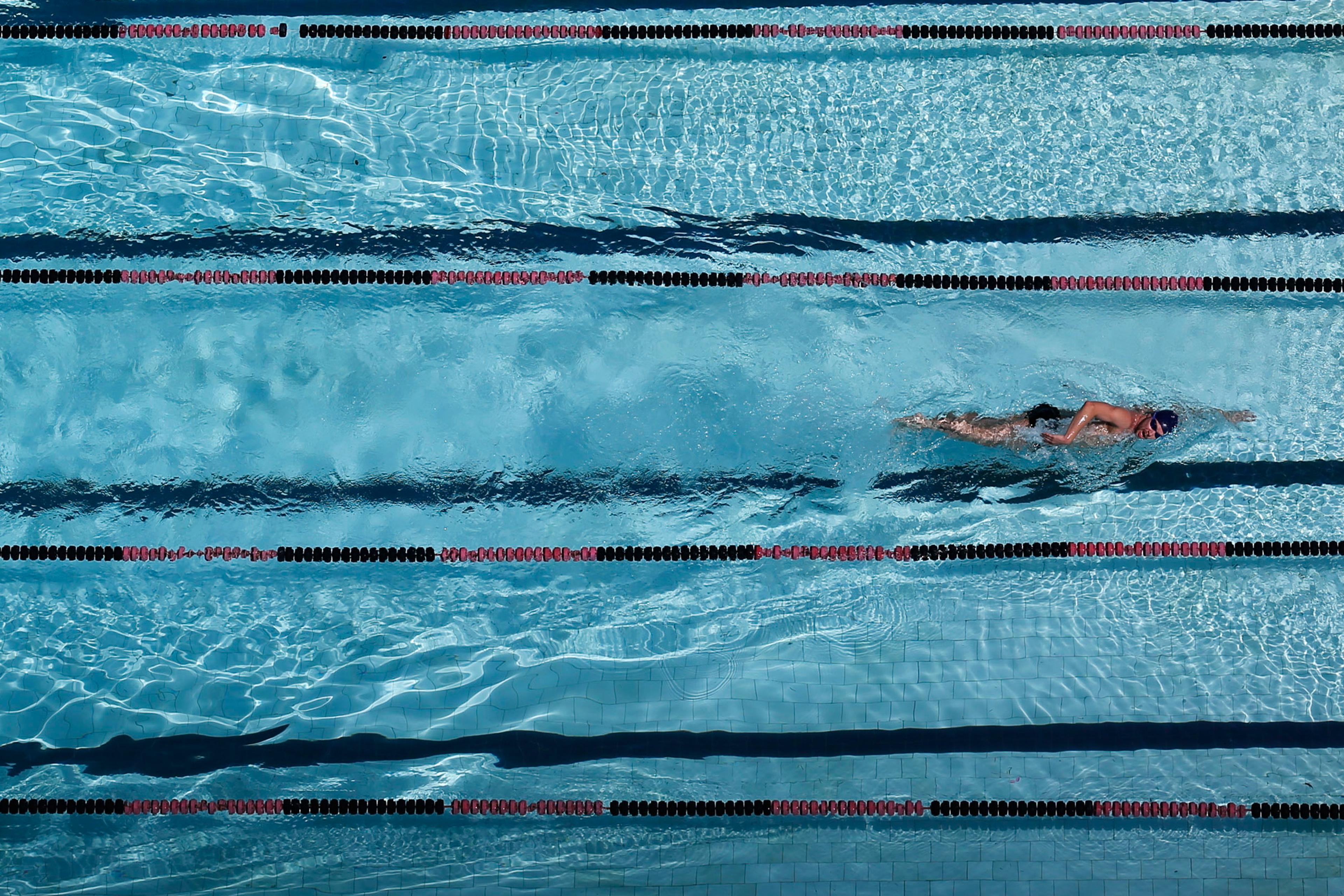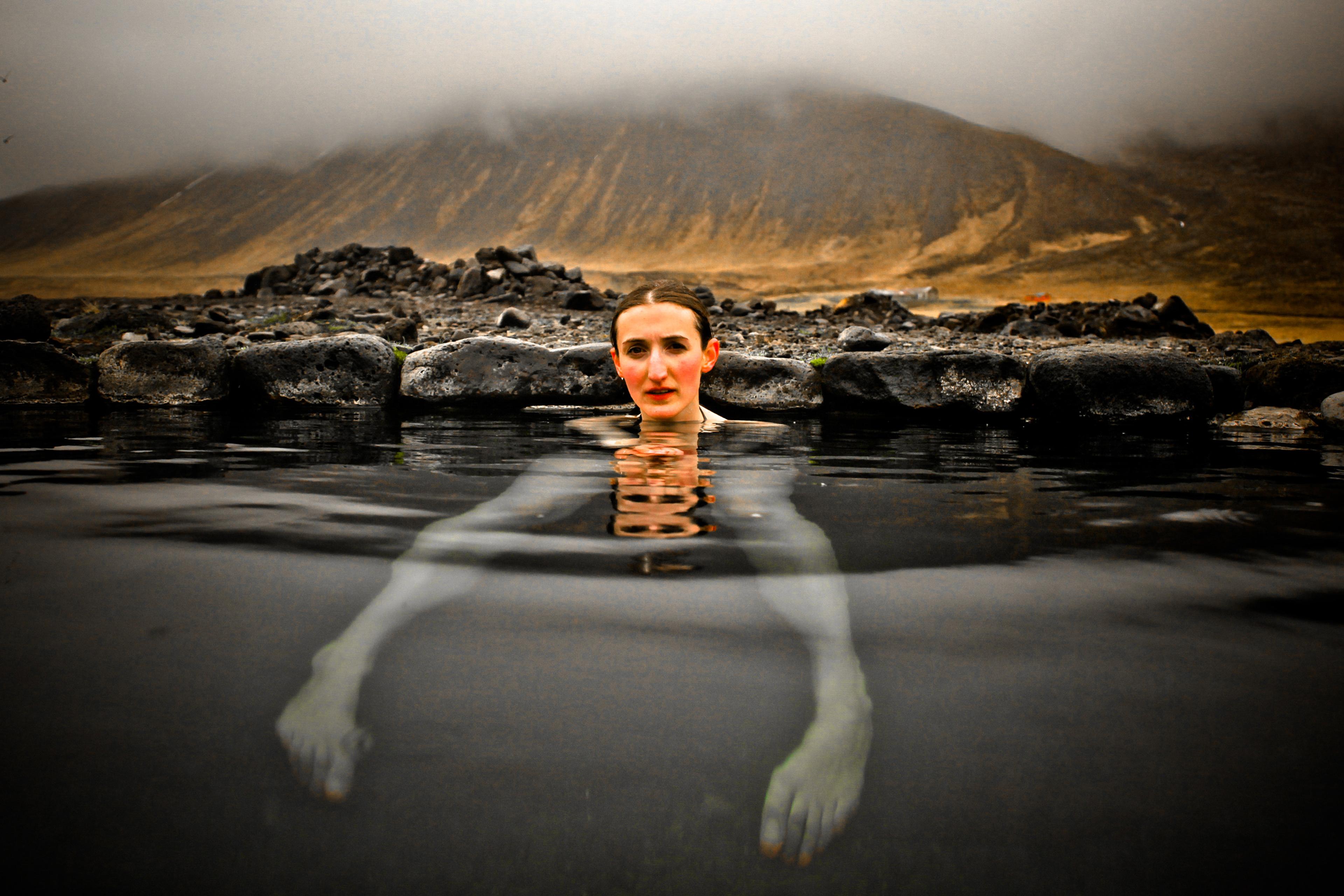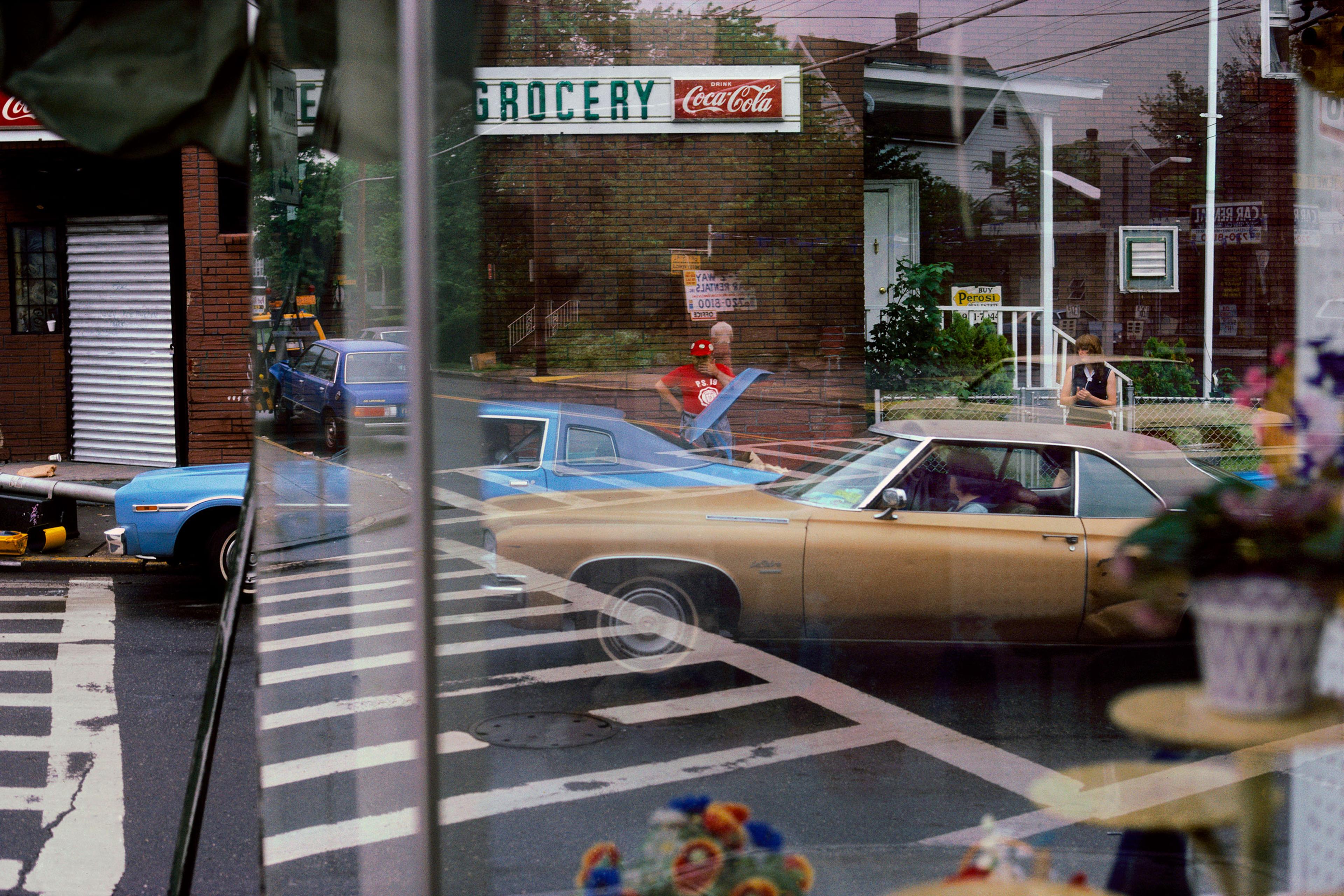It is not possible, said the pre-Socratic Greek philosopher Heraclitus, to step into the same river twice. As the argument goes, the river is made up of constantly flowing waters, for one thing; for another, people themselves are always changing – life experiences accumulating like sediment on a stream bed. Heraclitus was alluding to the idea of flux: that it doesn’t make sense to think in terms of static states of being, but, rather, in terms of processes unfolding over time.
In the contemplative film Not the Same River. Not the Same Man by the German-English filmmaker Michelle Brand, a fisherman takes his boat out to a river, while a bird circles above, and a leaf falls, tracing ripples on the water’s surface. In just a few hand-painted lines of bold blue, black and red acrylic, Brand captures the river’s flow and the fleeting thoughts of the fisherman as they animate his face. Staggered, overlapping frames create an echo of movements just gone by. The pulsing soundtrack, by the Polish accordion ensemble Motion Trio, captures the insistent pull of the water. Both the river and the fisherman are in constant change, but they also transform each other: when the fisherman steps into the river, eddies swirl away from him; and the river washes and soothes his feet, feeds him with fish. A bird, flying in and out of the scene, seems to wait for the chance to catch a fish stirred up by the fisherman’s presence.
Animation, a process that turns static images into movement over time, is an apt medium for Heraclitus’ aphorism. Each frame is hand-painted, so even moments of stillness seem to flicker with the subtle variations in how a line was formed or how the paint dried. No two frames, and no two moments, are identical. Yet, the past leaves its mark on the present, like small waves in the boat’s wake.
Heraclitus’ ideas are known to us only through fragments, preserved in the writings of others, with most of his work lost to time. His aphorism of the river has been picked up and turned over like a pebble in the palms of so many thinkers over the millennia – accruing new layers of meaning through different interpretations. For some, Heraclitus’ ancient theory of flux even seems to have anticipated some of the latest ideas in quantum mechanics.
The idea of impermanence, of fleeting, ephemeral moments, can be a melancholy one for those who would wish to hold on to a cherished state, but the idea of flux also suggest possibilities for new experiences and sensations in the inevitable process of transformation. As the fisherman himself seems to dissolve in fluttering lines of paint, he joins the river on its course – a final metamorphosis wrought by time.
Written by Freya Howarth







